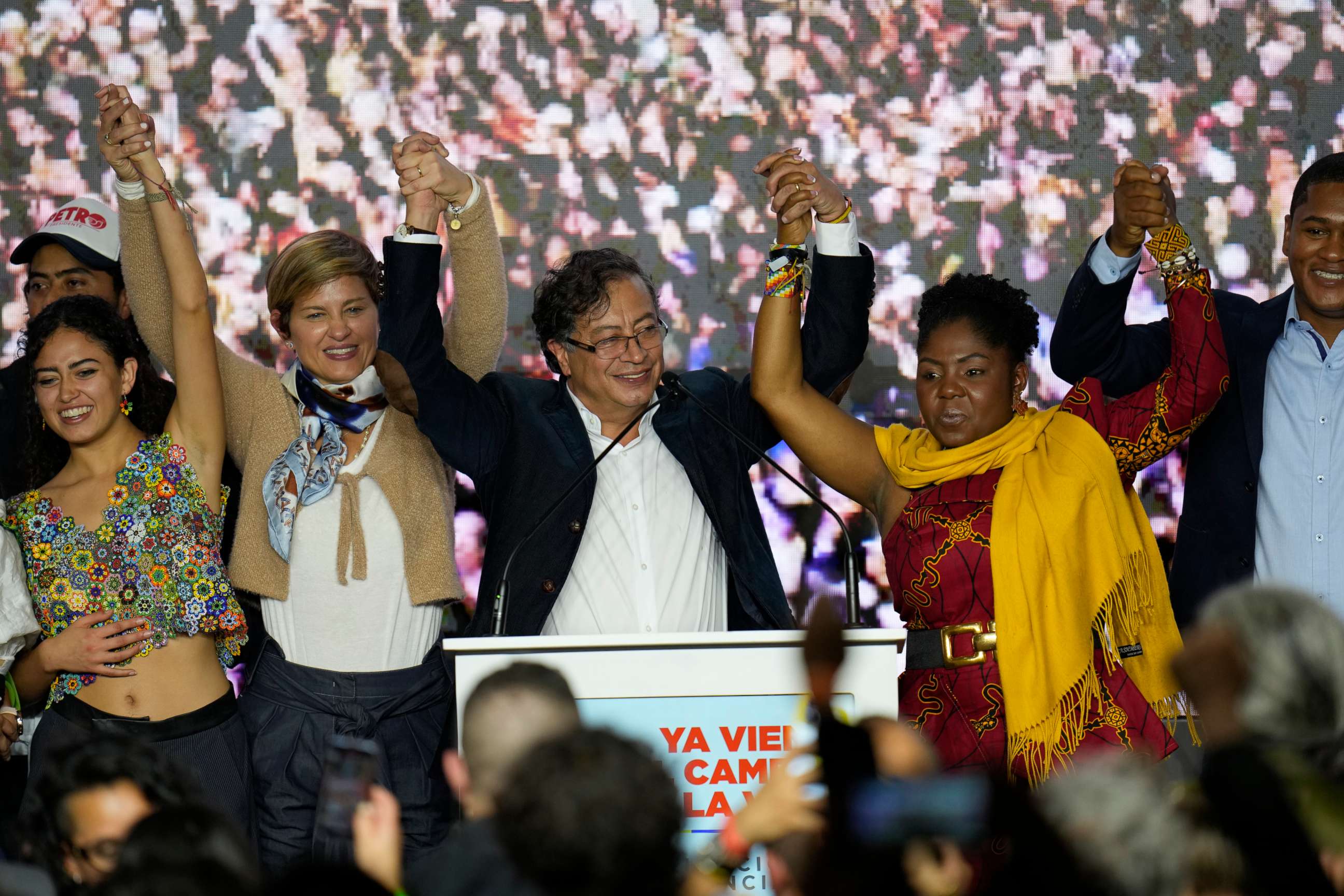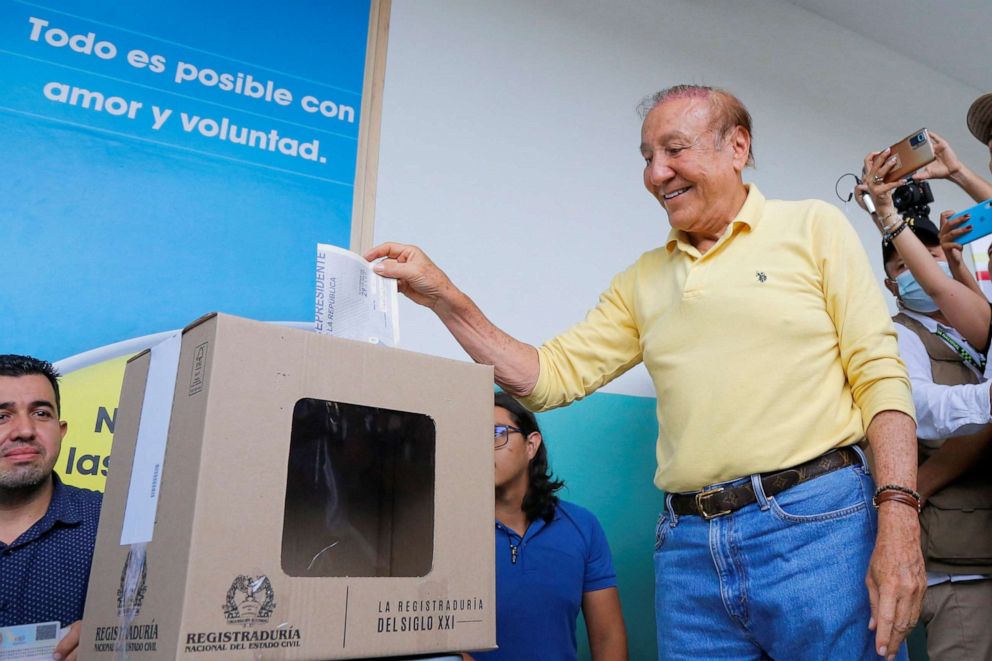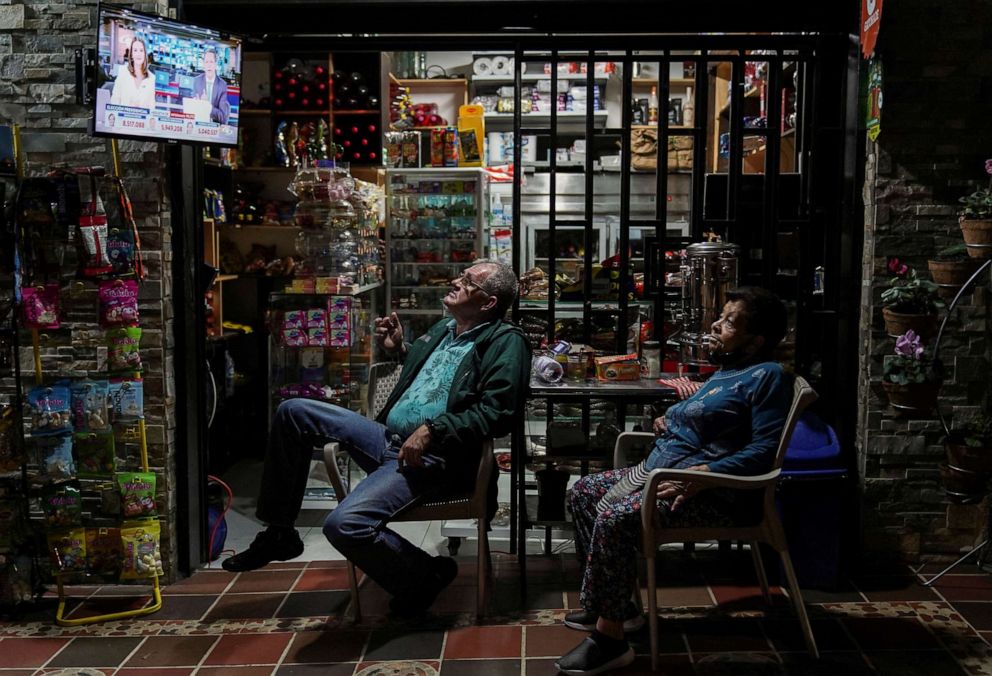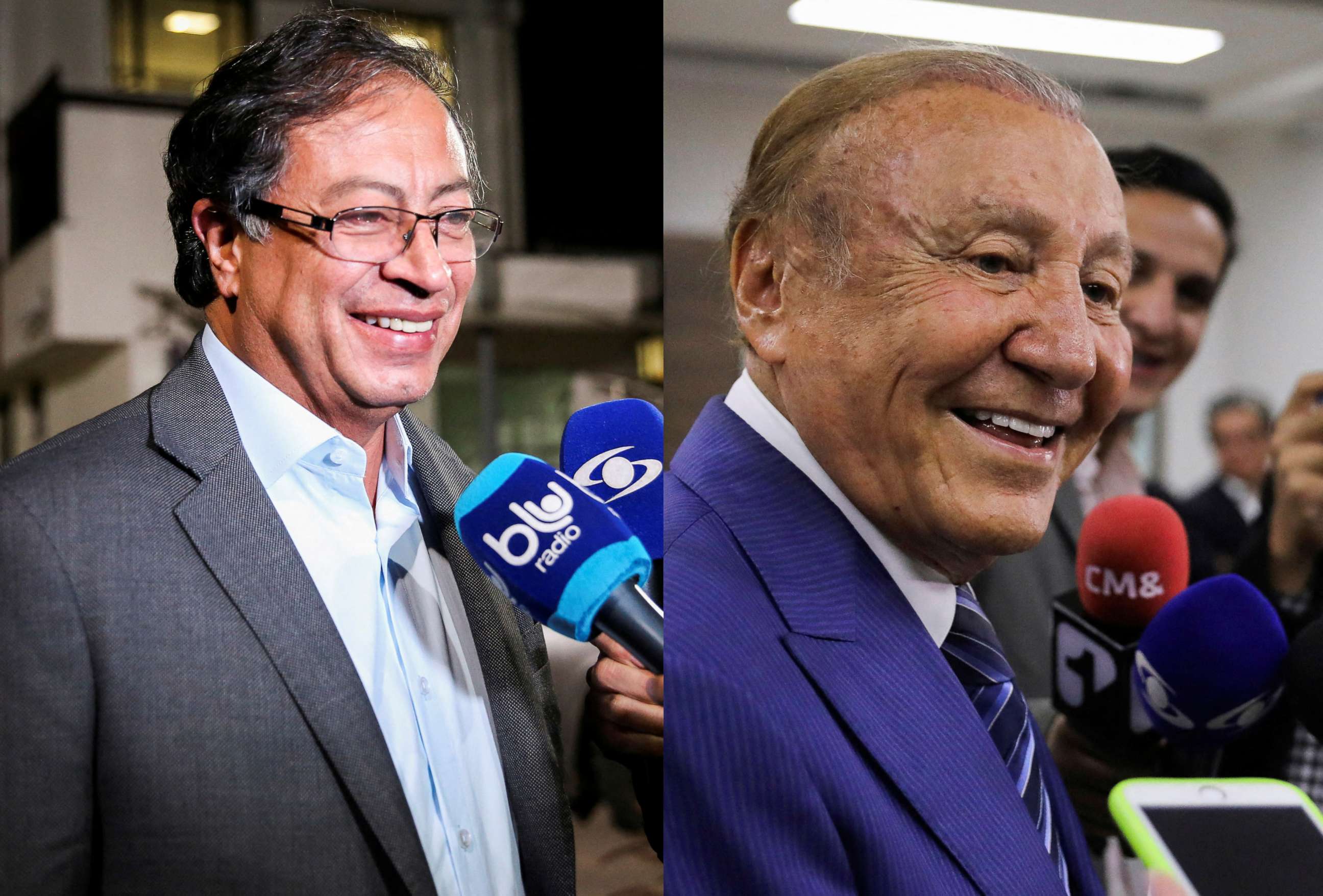Colombia's historic election heads to perilous runoff with big implications for US: ANALYSIS
Colombia now faces two populists -- a former guerrilla and a businessman.
MEXICO CITY -- It is the most consequential election in decades in Colombia -- and Latin America's third-largest country will now choose between a Bernie Sanders-like candidate or a Donald Trump-like one.
Colombians went to the polls Sunday, fed up with decades of mainstream conservative rule and establishment politics, and decisively ended it.
Instead of the conservative standard-bearer, voters favored Gustavo Petro, 62, a left-wing senator and former guerrilla, who received about 40% of votes, according to official results. Rodolfo Hernández, 77, a right-wing populist businessman, captured about 28%.
Neither won the 50% of the vote necessary for a victory, so they'll face off in a runoff on June 19.

Either way, there's growing concern that the fresh scars left by decades of civil war are splitting open again in a moment of intense political polarization, deepening economic discontent and worsening violence in rural areas -- destabilizing one of the United States' most important allies in Latin America and risking wider conflict or regional upheaval.
If Petro wins -- on his third presidential run -- he will be the first leftist president of a country where many still fear the left-wing guerrillas who battled the government and right-wing paramilitaries for decades -- among them, the now demobilized left-wing group Petro once belonged to.
If Hernández wins, his self-financed, social media-fueled campaign focused on corruption will have to make a hard turn toward actually governing amid a moment of crisis. Many of his policy positions are unknown, while his history of controversial and offensive statements is long, and allegations of his own corruption may undermine his claim to champion the fight against it.
"This is the end of politics as we knew it in Colombia, which is exciting and scary, and all we can say with certainty is that the days until June 19 will be VERY INTENSE and there are a lot of unknowns ahead of us," Renata Segura, the deputy director for Latin America and the Caribbean at the International Crisis Group, a research think tank, said on Twitter.

Amid the political chaos, violent groups on the left and right are deploying force to reassert their power. Last year was the most violent year, according to the Red Cross, since Colombia signed a peace deal in 2016 to end the war with the Revolutionary Armed Forces of Colombia, the left-wing guerrilla group known as FARC.
While election day itself saw minimal violence on Sunday, there are fears of what may come in the weeks ahead amid uncertainty. Petro, who has received death threats, has been under intense security, along with his vice-presidential candidate Francia Márquez, a human rights lawyer and environmental activist, who would make history as Colombia's first Black vice president.
Concerns over racism, especially by police, helped fuel massive protests across Colombia a year ago after demonstrators first took to the streets to protest a proposed tax increase. The COVID-19 pandemic has hit Colombia particularly hard, setting back decades of economic progress and fueling public anger, poverty and sparks of violence -- although many also blame the current government's failure to fully implement the peace deal.
All of that helped fuel Petro's first-place finish this time around and catapulted Hernández from single digits in April to second place, with so many Colombians fed up with the status quo, like voters in Peru, Chile, Ecuador and Honduras -- a wave of discontent that some analysts say the U.S. needs to be more attentive to, including with stronger economic cooperation.
Many mainstream politicians quickly rallied to Hernández's side after his surprise showing Sunday, fiercely intent on shaping his potential administration and blocking Petro's path to the presidency. Conservative standard-bearer and former Medellín Mayor Federico 'Fico' Gutiérrez threw his support behind Hernández hours after Gutiérrez's third-place finish.

Gutiérrez and other Petro opponents -- in Colombia and the U.S. -- warn that Petro's left-wing economic policies will turn Colombia into neighboring Venezuela, where socialist President Nicolás Maduro's economic mismanagement, corruption and human rights abuses have tanked the economy and driven over six million people from the country.
Addressing that crisis and the enormous migration across the region that has led to historic numbers of migrants arriving at the southern U.S. border have been top concerns for Biden's administration, which is also focused on countering drug trafficking and China's growing influence across Latin America.
That security-focused approach is likely to put Biden, or any U.S. president, at odds with Petro. The leftist former mayor of the capital, Bogotá, has vowed to change Colombia's approach to drug trafficking after years of U.S. investment and military aid. He's opposed the forced eradication of coca crop, a policy backed by U.S. funding, and questioned the merit of extraditing drug traffickers to the U.S. -- weeks after Colombia's most-wanted drug lord was extradited to face charges in U.S. court.
Petro has also vowed to repair ties with Maduro, including restoring diplomatic relations severed in 2019 -- another potential flash point with the U.S., which no longer recognizes Maduro's legitimacy.
But other issues, notably climate change, align Petro's agenda with the Biden administration. Petro has promised to cut oil and gas production and usher in a new green economy, largely based on tourism -- in line with Biden's own efforts to combat climate change.
What's more unclear is how Hernández would approach governing in general, including Colombia's relationship with its most powerful ally.
Hernández's singular campaign message was countering corruption, tapping into a populist anger and hitting on a theme the U.S. has long prioritized in the country. But how he has proposed doing so could spark U.S. opposition, including a possible 90-day state of emergency that suspends judicial and administrative offices in what critics say would be an undemocratic power grab.

Hernández has also been criticized as a false prophet: He campaigned as an anti-corruption candidate, but he resigned as mayor of the city of Bucaramanga in 2019 after facing corruption charges, although he still denies the allegations.
Like Petro, Hernández has also opposed coca crop destruction and voiced support for legalizing marijuana. But he may go further, recently floating the idea of legalizing all drugs.
If nothing else, Hernández's penchant for inflammatory statements may cause headaches in Washington. He infamously said during an interview that he was an admirer of the "great German thinker" Adolf Hitler, apologizing later and saying he meant to say Albert Einstein. During the election, he appeared to not recognize that Vichada is one of Colombia's 32 departments -- and the one where he won the most votes Sunday.
In the face of all this, U.S. officials, including the top U.S. diplomat for the region, Brian Nichols, have refused to criticize any of the Colombian presidential candidates for months now.
"It is a decision for the Colombian people, and we hope for a free, fair, and transparent process," Nichols, assistant secretary of state for Western Hemisphere Affairs, told Congress in November.
But it's clear the U.S. is concerned about what comes next and is watching closely.




